We’ve talked quite a bit about inflammation in previous posts, but in case you don’t know exactly what inflammation is, it’s important to clarify that it’s actually a natural bodily response.
The immune system responds to threats both internal and external with an immune response that often includes inflammation, like when you get sick or when you get an injury.
This is an important step in healing, and in these isolated and sporadic incidents, inflammation is 100% normal and healthy. When it’s consistent, chronic, or exacerbated is when the trouble starts.
While there is no real difference in the origin – an immune response to some sort of threat – we have to determine the threat. For example, there’s a massive difference in the threat of a stubbed toe and autoimmune disease.
A stubbed toe is going to swell for a short period of time and heal naturally, while autoimmune disease has a variety of triggers, happens internally, often isn’t so obvious, and presents as chronic, low-grade inflammation that we may not even notice.
We understand that diet plays a big role in inflammation. Many processed foods cause or exacerbate preexisting inflammation, and these are the absolute worst offenders.
1. Deep-fried foods
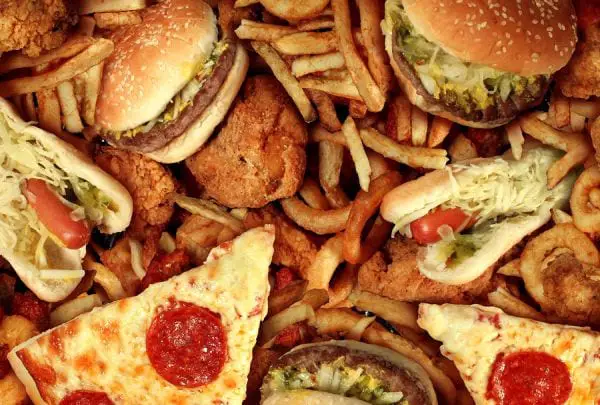
There’s not much arguing the damaging effects of trans fats in the nutrition world. Most foods and additives have cases on both ends, but trans fats are universally bad news.
Most fast food restaurants have ceased use of the stuff which is positive, but they’re still out there. It’s also worth mentioning that there are naturally occurring trans fats – or ruminant trans fats – that are not harmful to our health found in dairy products.
It’s the processed trans fats you need to watch out for. These hydrogenated oils are pumped with hydrogen during processing, transforming them from a liquid oil to a solid oil which increases shelf life – likely one of the main factors the popularity of trans fats at one point.
Avoiding hydrogenated oils is key for addressing inflammation. Research done on women shows that trans fats consumption is positively linked to systemic inflammation (1).
Additional research concludes that trans fats impact endothelial function by increasing plasma concentration of C-reactive protein (CRP) (2). CRP increases with inflammation, and is a non-specific marker for disease, helping us to also identify the link between inflammation and many diseases such as heart disease.
Trans fats consumption is also linked to increased inflammatory cytokine production which is also associated with heart disease. (3).
2. Excessive alcohol

It’s unlikely that a glass or two of wine a night is going to hurt much, but drinking too much and/or drinking too often can really do you in. You might recall recent health claims about red wine, and it turns out, those are true.
Those antioxidants are indeed anti-inflammatory, but there’s definitely a threshold, and moderation is key to obtain any of those benefits and avoid any of the negative side effects (including the hangover, of course).
Funnily enough, both non-drinkers and heavy drinkers both had higher markers of systemic inflammation in one study aiming to understand the mechanisms in which moderate drinking reduces risk of coronary heart disease (4).
With that said, a single glass of wine might be doing you more good than harm. On the other hand, chronic and heavy alcohol use weighs down on liver functions and gut functions which can cause chronic systemic inflammation and increase risk of disease.
3. Sweet snacks
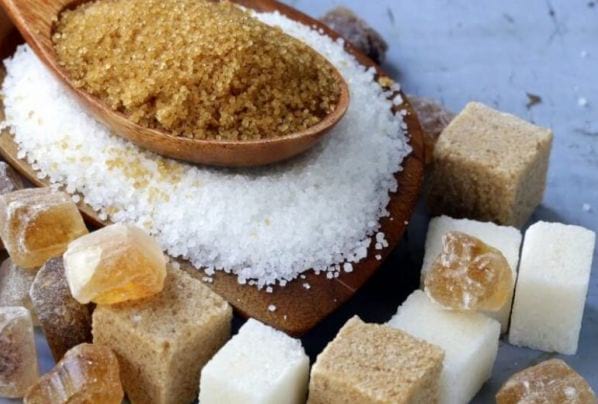
Refined sugar is something even someone considered healthy could stand to cut out of their diet. Whether you go low-sugar, simply cut out refined sugars, do a quick detox, or go full on keto eliminating all carbs, there is benefit to everyone – including decreased inflammation markers.
Sugar is basically the new trans fat, being shunned all over the place, and it’s not without good reason. Unfortunately, it’s not quite as simple to get rid of, and it’s quite pervasive in many of the foods we buy.
It basically comes down to the shift in glucose levels. High-sugar foods and refined carbohydrates elicit a blood glucose rise, encouraging a rapid-onset drop which fosters low-grade inflammation.
One study of particular interest is one done with otherwise healthy young men who drank sugar-sweetened beverages in small to moderate quantities throughout a 3-week period.
During that time, they measured negative effects on LDL cholesterol, fasting glucose, and CRP which goes to show that sugar can be damaging to anyone – not just those at high risk of inflammation (5).
4. Processed meat
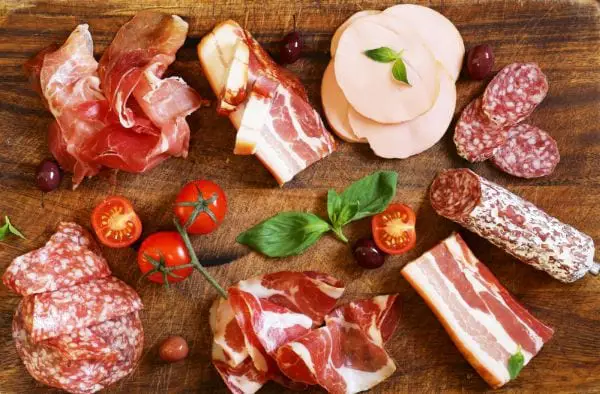
Animal products in and of themselves aren’t to blame for inflammation or heart disease. Choosing the right meat counts, so getting educated on which types are healthy versus those that aren’t is important.
Like with anything “bad” for you, moderation is going to be the rule here. Processed meat can easily be included into the diet occasionally, but eating deli meats, smoked meats, and even bacon on the regular may not be the smartest choice.
It’s best to limit consumption to a few times per week or less, and source processed meats that have minimal additives.
Half the battle is the additives. Processing might include the addition of corn syrup, other forms of sugar like dextrose and sucrose, modified food starch containing corn and wheat, nitrates that aren’t naturally occurring, MSG… the list goes on.
You’ll notice those first three on our list today, which furthers our case for this being one of the most pro-inflammatory foods. In a study done to observe dietary exposures that lead to inflammation and type 2 diabetes, processed meats were one of the culprits along with sugar and refined grains (6).
You may have also heard claims that linked processed meat consumption to cancer risk, and there’s actual research to back this up (7). Where there is disease, there is inflammation.
5. Vegetable oil

There are so many other oils out there to use, there’s just no reason not to ditch the refined vegetable oils and swap ’em out for coconut oil or avocado oil.
This also means avoiding foods that are fried while dining out, because there’s no doubt you’re getting a nice, unhealthy serving of inflammatory food in a neat, dippable, and downright addictive package.
The enemy? Omega-6 fatty acids. See, these omega-6s have a counterpart, but the inflammation comes when that balance gets out of whack and stays out of whack.
The problem here is that these oils and their prevalence in the Standard American Diet give us a serious deficiency in omega-3 fatty acids – a huge marker of inflammation.
Studies shows that omega-3 supplementation reduces production of pro-inflammatory cytokines, overall suppressing inflammation (8) (9). While omega-6 fatty acids are necessary for health, our ratio needs to be somewhere between 1:1 and 1:3 rather than 1:10 which is far too common.
6. Milk

Here’s another food that many people are intolerant to, which already sends out some of those red flags that we might trace back to inflammation. Any response to a stressor in the body – in this case, lactose – is going to be met with systemic inflammation.
When the body can’t digest a certain food, it’s not going to be digested properly, and those compounds are going to enter other parts of the body it shouldn’t be.
With that said, this isn’t all people or all dairy. Fermented dairy and grass-fed dairy is nutritionally superior, and many dairy products are low in lactose and casein – two main irritants.
If you are lactose-intolerant, milk should be out of the picture. Unsurprisingly, it increases systemic inflammation markers. It’s also important to recognize that dairy presents many of the same problems as meat, because we have to take into consideration what the producer’s diet was like.
Cows injected with antibiotics and hormones, raised on corn will yield milk that is less nutritionally dense and has a different (and less ideal) nutrient profile, leading to inflammation.
Conventional milk products often contain additives. Properly sourced dairy and fermented dairy can decrease inflammation though.
7. Bread & pasta
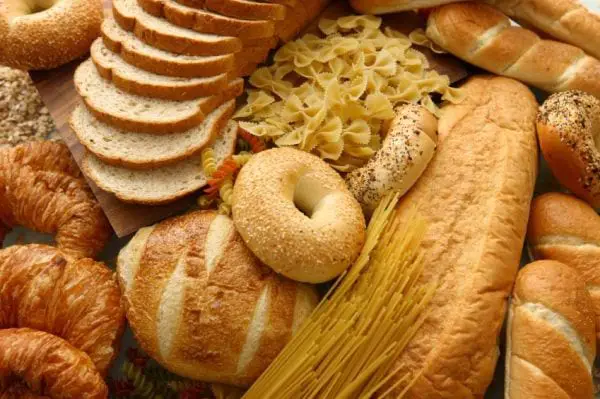
All aboard the gluten-free train! Yeah, we’re going to say it here… white bread and pasta could be hurting you even if you’re not coeliac.
It can cause gastrointestinal distress in people without a marked allergy according to one study (11). Remember the main cause of inflammation here: stress.
Research indicates that a gluten-free diet can be a very effective therapeutic treatment for obesity, inflammation markets, and insulin resistance (10).
The proteins found in wheat (namely wheat germ agglutinin) are prone to irritating the gut, causing that gastrointestinal reaction, because of amylase trypsin inhibitors, which drive inflammation due a specific reaction.
All of this stress in the gut can cause intestinal permeability or leaky gut which can drive inflammation and cause a vicious feedback loop. Finally, non-coeliac gluten sensitivity can impact the gut flora, inhibiting good bacteria and increasing bad bacteria – another cause of inflammation (12).
8. Conventional meat
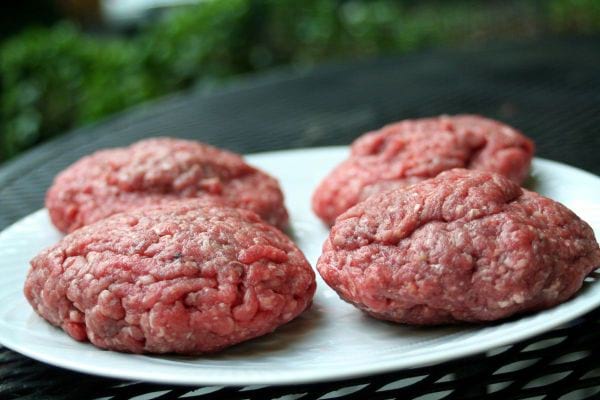
All meat from a conventionally raised animal is a nightmare for inflammation (and for the environment, but that’s another story). This is because it encompasses so many other components of problematic food on our list today.
We can combine some factors from processed meat, grains, that omega-6 fatty acid profile, and some similar components from dairy into the mix here and we have a recipe for disaster in the gut.
Another factor to take into consideration is the amount of stress that animals are in poor factory farming conditions. Before the animals are slaughtered, hormonal havoc is happening within.
The animals will have high release of cortisol and they face a drop in pH which you can tell by the color of the meat. Animals in these conditions will often have grey-ish meat.
This meat is nutritionally inferior for human consumption. Just think about it this way: we are what we eat. These products are high in omega-6 fatty acids driving that omega-3 deficiency and the subsequent inflammation.
9. Processed corn
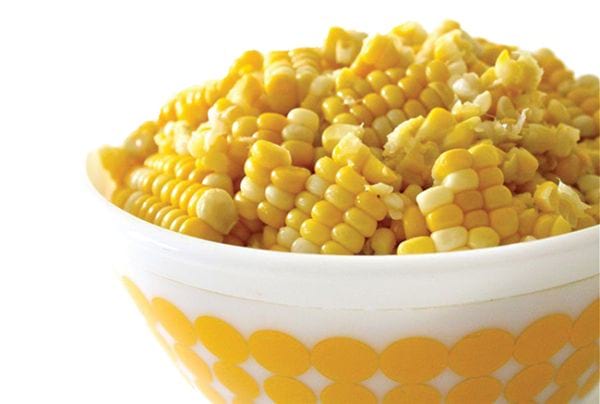
Let’s get one thing straight: corn is a grain and not a vegetable. While it is gluten-free, it still presents some problems. Like many oils and sugar, corn is found in everything these days, and not in it’s natural form.
Processed corn like corn syrup and corn starch, and corn oil are entering their way into our diets via processed foods, so make sure to read your labels.
While an ear of organic corn here and there won’t hurt, most corn is a GMO product grown on lands that are treated with tons of pesticides. It’s modified to be sweeter than it should be.
Of course, different components impact inflammatory markers in different ways; corn syrup presents similar problems to sugar, and corn oil presents the same problems we get with any refined oils.
Avoiding corn byproduct should be a priority for anyone who wants to decrease inflammation.
10. Peanuts
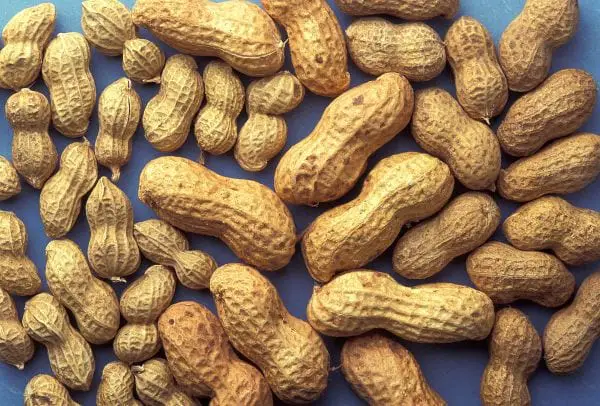
Peanuts aren’t bad for everyone, but you might be aware that they are a common allergen. Considering that, there’s more of a likelihood that you aren’t allergic, but you are sensitive to peanut consumption.
Food sensitivities are a lot different than an allergy because the symptoms will present in different ways, and it’s usually more mild. That mild reaction may very well just be low-grade inflammation, and it’s easy to ignore it because you don’t notice it at all.
It’s also important to distinguish peanuts from the rest of the nuts. Peanuts aren’t a nut at all; in fact, they are considered a legume. This doesn’t make them inherently inflammatory, but they do contain more phytic acid which can irritate the gut and cause inflammation.
They’re also high in omega-6 fatty acids – a downfall of many nuts – and can throw our balance off whack which we talked about in relation to inflammation above.
Lastly, because peanuts grow underground, they are more susceptible to mould which is exactly what causes that immune reaction when people are allergic.
If you cut any foods out of your diet, these should be it! Many of these pro-inflammatory foods are also foods that contribute to leaky gut – a symptom of inflammation.
Focus on real, whole foods and anti-inflammatory remedies and supplements to reduce symptoms and heal from the inside out.
Pin it for later from here
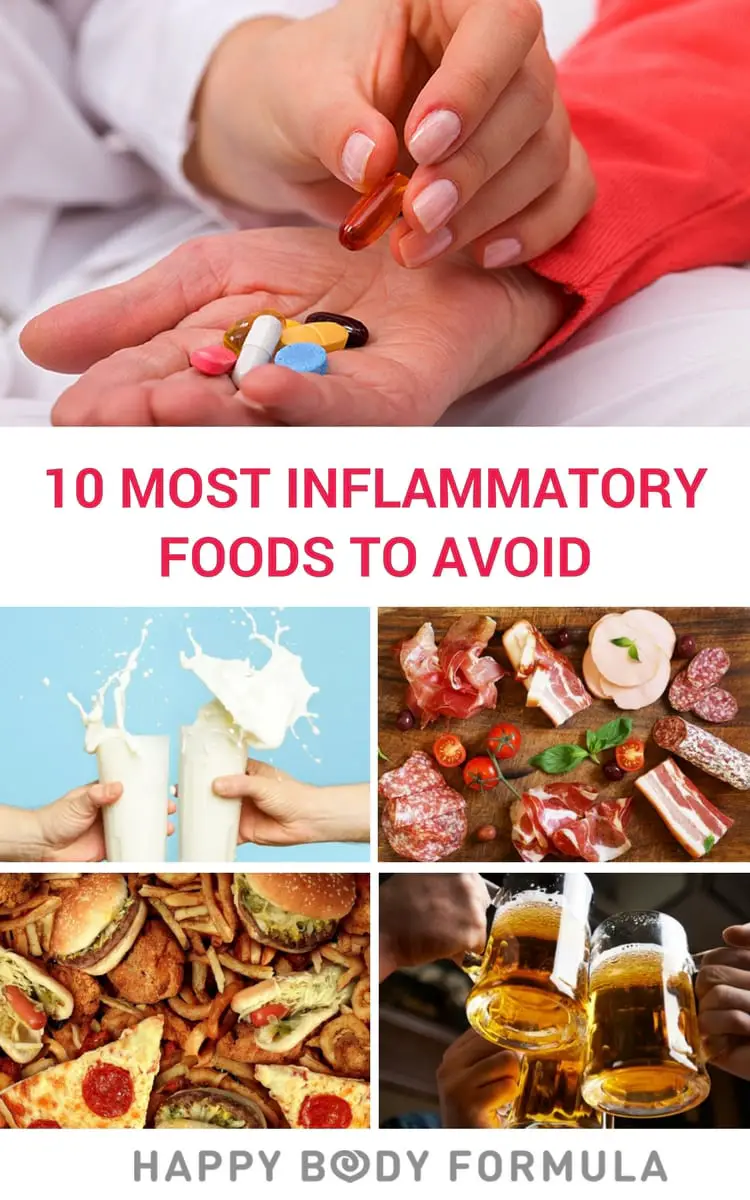
Sources:
1. Mozaffarian, D, et al. “Dietary Intake of Trans Fatty Acids and Systemic Inflammation in Women.” The American Journal of Clinical Nutrition, Apr. 2004, pp. 606–612., www.ncbi.nlm.nih.gov/pubmed/15051604.
2. Lopez-Garcia, E, and MB Schulze. “Consumption of Trans Fatty Acids Is Related to Plasma Biomarkers of Inflammation and Endothelial Dysfunction.” The Journal Of Nutrition, Mar. 2005, pp. 562–566., www.ncbi.nlm.nih.gov/pubmed/15735094.
3. Han, S N, et al. “Effect of Hydrogenated and Saturated, Relative to Polyunsaturated, Fat on Immune and Inflammatory Responses of Adults with Moderate Hypercholesterolemia.”Journal of Lipid Research., U.S. National Library of Medicine, Mar. 2002, www.ncbi.nlm.nih.gov/pubmed/11893781.
4. Imhof, Armin, et al. “Effect of Alcohol Consumption on Systemic Markers of Inflammation.”The Lancet, vol. 347, no. 9258, 10 Mar. 2001, pp. 763–767., www.sciencedirect.com/science/article/pii/S0140673600041702.
5. Aeberli, Isabelle, et al. “Low to Moderate Sugar-Sweetened Beverage Consumption Impairs Glucose and Lipid Metabolism and Promotes Inflammation in Healthy Young Men: a Randomized Controlled Trial.” The American Journal of Clinical Nutrition, vol. 94, no. 2, Aug. 2011, pp. 479–485., doi:10.3945/?ajcn.111.013540.
6. Schulze, Matthias B, et al. “Dietary Pattern, Inflammation, and Incidence of Type 2 Diabetes in Women.” American Society of Clinical Nutrition, vol. 82, no. 3, Sept. 2005, pp. 675–684., ajcn.nutrition.org/content/82/3/675.short.
7. Cross AJ, Leitzmann MF, Gail MH, Hollenbeck AR, Schatzkin A, Sinha R (2007) A Prospective Study of Red and Processed Meat Intake in Relation to Cancer Risk. PLoS Med4(12): e325. https://doi.org/10.1371/journal.pmed.0040325
8. James, Michael J, et al. “Dietary Polyunsaturated Fatty Acids and Inflammatory Mediator Production.” American Journal of Clinical Nutrition, vol. 71, 1 Jan. 2000, pp. 343–348., ajcn.nutrition.org/content/71/1/343s.short.
9. Simopoulos, A P. “The Importance of the Ratio of Omega-6/Omega-3 Essential Fatty Acids.”Biomedicine & Pharmacotherapy, vol. 56, no. 8, Oct. 2002, pp. 365–379., doi:https://doi.org/10.1016/S0753-3322(02)00253-6.
10. Lacerda Pires Soares, Fabiola, et al. “Gluten-Free Diet Reduces Adiposity, Inflammation and Insulin Resistance Associated with the Induction of PPAR-Alpha and PPAR-Gamma Expression.” The Journal of Nutritional Biochemistry, Elsevier, 17 Dec. 2012, www.sciencedirect.com/science/article/pii/S0955286312002264.
11. Biesiekierski, Jessica R, et al. “Gluten Causes Gastrointestinal Symptoms in Subjects Without Celiac Disease: A Double-Blind Randomized Placebo-Controlled Trial.” American Journal Of Gastroentenology, 2011, pp. 508–514., doi:doi:10.1038/ajg.2010.487.
12. Makharia, A, et al. “The Overlap between Irritable Bowel Syndrome and Non-Celiac Gluten Sensitivity: A Clinical Dilemma.” Nutrients, 10 Dec. 2015, pp. 10417–10426., doi:10.3390/nu7125541.
Music, mountains, dogs, travel, food and friends.

